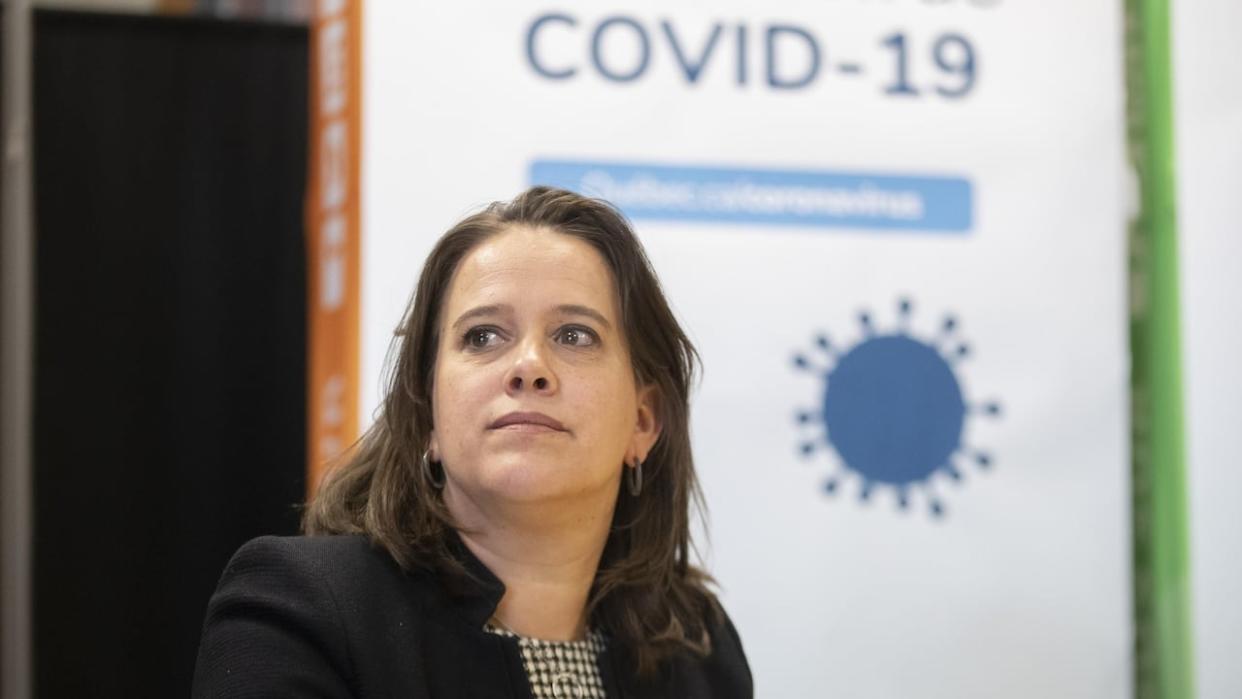Montreal public health against plan for mini casino near Bell Centre

UPDATE: On Tuesday, Sept. 19, Loto-Québec announced it would back down from its plan to open the mini casino, calling it a missed opportunity.
Montreal Public Health says Loto-Québec's plan to set up a mini casino near the Bell Centre is a bad idea that could "normalize" gambling for many people that come out to watch Habs games.
Loto-Québec wants to rent the now closed 1909 Taverne Moderne — a three-storey building on des Canadiens-de-Montréal Avenue that can be accessed from the Bell Centre — and set up 350 slot machines.
If the project went ahead, Loto-Québec would remove about 600 video lottery machines elsewhere on the island, including about 160 in the downtown area.
The mini casino is part of a partnership between the provincial gaming authority and Groupe CH, the entity that owns the Montreal Canadiens.
In a 42-page report that was first obtained by La Presse, Montreal Public Health said opening a mini casino at that location would target men between the ages of 18 and 44 who are "particularly vulnerable" when it comes to gambling addictions.
"The risk for initiation to gaming is increased with this project," said Dr. Mylène Drouin, the director of Montreal Public Health.
"This access is attractive because you'll have all the promotion and the links to the Montreal Canadiens."
Drouin stresses that slot and betting machines can lead to gambling addictions with devastating mental and financial consequences.

If Loto-Québec has its way, hundreds of slot and betting machines would be installed just steps away from the Bell Centre in downtown Montreal. (Simon Nakonechny/CBC)
Earlier this year, the province's finance minister, Eric Girard, said the the proposal for the mini casino would go ahead only if it was approved by Quebec Public Health. Montreal Public Health's report was submitted to those provincial public health authorities a few weeks ago for consideration.
On Monday, a spokesperson for the finance minister declined to comment on Montreal Public Health's report.
Drouin speaking with media but not with us: Loto-Québec
In a statement, Loto-Québec said it was taken aback by Drouin's public statements.
"We are stunned that Montreal Public Health would decide to send its report — and grant interviews — to journalists, instead of the main party concerned, Loto-Québec," reads the statement.
"We're especially surprised given that we've been working with Montreal Public Health on this matter for two years."
According to Montreal Public Health data, the number of visitors to the Montreal Casino has steadily decreased since 2005, but online gaming has gone up significantly.
Loto-Québec also said it has a hard time understanding why its plan to reduce the number of video lottery machines by about 600 would be considered a bad idea.


